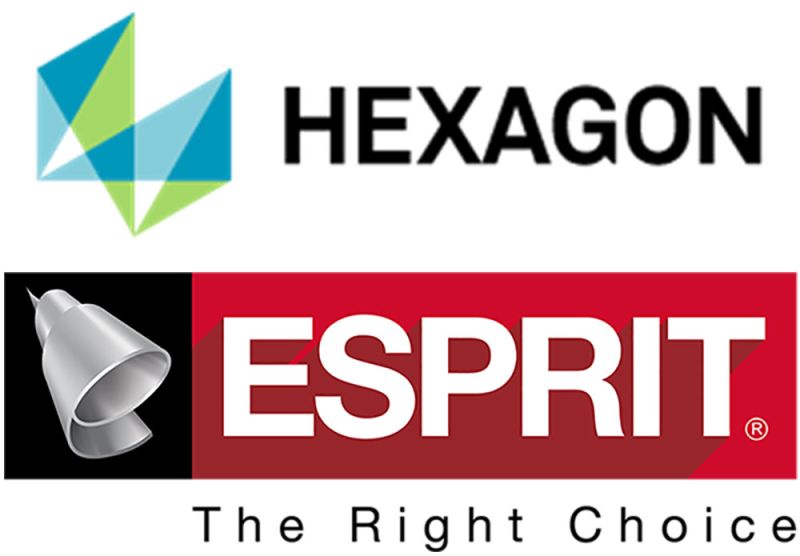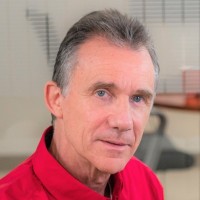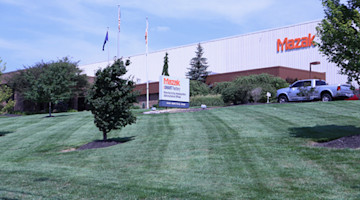We recently spoke with Paul Ricard, co-founder and president of DP Technology Corp. about his career, the growth of the company, and its recent acquisition by Hexagon AB. DP Technology is a leading developer of computer-aided manufacturing (CAM) software for CNC programming, optimization, and simulation that supports the entire manufacturing process.
Paul Ricard was born and raised in France, where he received a master's degree in engineering and discovered his passion for programming. After engineering school, he began a one-year internship at a software company that asked if he would like to work on a two-year assignment at their branch office in Chicago. He’d never been to the United States before but accepted the offer and flew to Chicago with a one-way ticket. This was 40 years ago in 1980.
In Chicago, Ricard met Dan Frayssinet, also an engineer from France, who later became his business partner and the co-founder of DP Technology. They founded DP Technology in 1982, and promptly moved to Southern California to escape the cold Chicago winters.
“Starting the company let me combine my passion for software development, my engineering background, and my desire to be in business for myself. It was the perfect combination,” said Ricard. “It seemed like a no-loss proposition to Dan and me. We’d put all our efforts into developing our product, and if we were not successful, we'd pack up and go back to France and find jobs there.”
The rest is history because DP Technology did make it and grew to become a global CAM software company.
In its early days, DP Technology focused largely on wire EDM machine tools, a small niche market that allowed them to grow steadily. They expanded into milling and turning, and by the early 2000s, started working with multitasking machines, an area of the market that was about to explode.
We asked Ricard how he has defined success along the way, and at what point he felt that DP Technology had “made it.”
“The way I looked at business and the growth of the company, I never really felt that we’d ‘made it’. I'm a bit relentless when it comes to business, and always saw ways to improve the product, to bring the company to the next level of growth, to make the organization stronger, and to acquire another customer. I tend to view business a little bit like a game with no ending, because I love to play that game,” said Ricard.
That said, in 2008, DP Technology signed a major five-year contract with Japanese machine tool company Mori Seiki (now DMG MORI) to ship a license of their ESPRIT software with every mid-range and high-end Mori Seiki machine, and it opened the door to working with other large machine tool builders such as Mazak, Okuma, and Citizen. Name and brand recognition increased exponentially after that. Company growth really took off, and DP Technology made several strategic acquisitions to complement and expand their offerings; staff grew, and the company increased investment in software development.
Knowing what you now know about business, what, if anything, would you have done differently regarding company strategy or products?
“Perhaps our biggest fault, but also our biggest strength, is that Dan and I are both engineers at heart, so we love to solve problems to meet customers’ needs. We've always focused on developing products that provide better solutions than anything else on the market. But the flip side of this is that because we love to solve problems, we were always eager to move onto the next problem, the next challenge. In retrospect, I think we could have spent more time and resources marketing existing products and solutions to a broader customer base. But I don’t have regrets; we have been very successful,” said Ricard.
Hexagon AB, headquartered in Sweden, is a large multinational with multiple divisions that recently acquired DP Technology. As a result, DP Technology joined manufacturing intelligence, Hexagon’s largest division, which boasts approximately $1.5 billion in sales and 8,000 employees.
What changes can we look forward to, given the acquisition by Hexagon?
Ricard said, “I see this as very positive for our customers for many reasons. We have the strength and financial backing of a large multinational company from the product development point of view, and given Hexagon’s global reach, ESPRIT usage will expand in manufacturing facilities around the world. ESPRIT customers will also have access to Hexagon’s suite of integrated products. There's true synergy between our companies and products, so both companies stand to benefit. Lastly, employees will have more opportunities for growth working for a larger company.”






